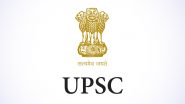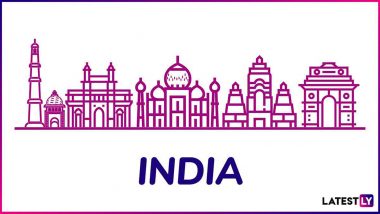Kolkata, Jun 29 (PTI) Several states including West Bengal and some BJP-ruled ones demanded that the Goods and Services Tax (GST) compensation mechanism be extended beyond the deadline of June 30 to support growth, Bengal minister Chandrima Bhattacharya said.
The extension is needed to meet the shortfall in revenue loss, said Bhattacharya, minister of state for finance (independent charge), after conclusion of the two-day GST Council meeting at Chandigarh.
Also Read | GST Council Meet 2022: Unbranded Packaged Foods To Be Brought Under Goods and Services Tax.
"We said that extension of compensation is required to support growth which is echoed by certain BJP-ruled states as well. If that is not extended, growth will be seriously affected across states," Bhattacharya who attended the meeting told PTI.
The GST which substituted 17 state and central levies came into being on July 1, 2017, and states were then assured of compensation for the revenue loss for five years ending Thursday.
Also Read | GST Council Meet 2022: Online Gaming Is Gambling Like Casinos, Says Nirmala Sitharaman.
Regarding taxation of online gaming and casinos, Bhattacharya said that the matter had been sent to the Group of Ministers (GoM) headed by Meghalaya Chief Minister Conrad K Sangma, which will hold a meeting on July 15.
The GST rates on online gaming and casinos were pegged at 28 per cent on the full value of the consideration. But Goa had sought a lower tax incidence as it is a high revenue earner of that state, she said.
Bhattacharya also said that there was also a proposal to set up a tribunal, and the next GST Council will meet next possibly at Madurai.
On the first day of the meeting, the council approved e-way bill on intra-state movement of gold, jewellery and precious stones to check evasion of tax and it had been decided that states can determine the threshold above which it will be made mandatory.
The council also decided to do away with the exemption on a host of items and services like packaged curd, lassi, and cereals. Besides, it took a decision that a 12 per cent tax on hotel rooms below Rs 1,000 per day will be levied, as against tax-exempt currently. PTI dc
(This is an unedited and auto-generated story from Syndicated News feed, LatestLY Staff may not have modified or edited the content body)














 Quickly
Quickly
















